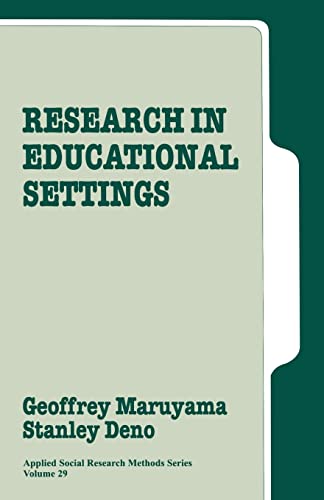Research in Educational Settings
Availability :
In Stock
₹ 4,212.00
M.R.P.:₹ 5265
You
Save: ₹1,053.00 (20.00% OFF)
(Inclusive
of all taxes)
Delivery:
₹ 0.00 Delivery charge
Author:
Geoffrey M Maruyama
Publisher:
SAGE Publications Inc
Edition:
1st Edition
ISBN-13:
9780803942080
Publishing Year:
1992-05-01
No. of Pages:
144 pages
Weight:
230 grm
Language:
English
Book Binding:
Paperback











